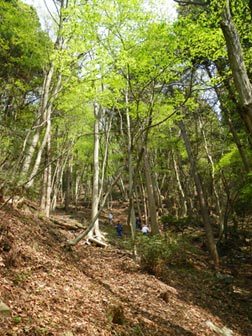| Task
Force Objectives |
|
|
The task force aims to gather and research scientific information on food microorganisms (especially harmful microbes) that is useful to the food products industry, from a broad perspective. It will also disseminate the results to third-party institutions through publications, symposiums, and lectures, under the name of ILSI Japan. |
| Main Activities to Date (Achievements) |
|
1.
|
|
Held international symposium on Alicyclobacillus (August 2003) |
|
2.
|
|
Issued publication on Alicyclobacillus (Kenpakusha, August 2004) |
|
3.
|
|
Held symposium on microbial contaminants in food products (December 2006) |
4. |
|
Published Alicyclobacillus (Thermophilic Acidophilic Bacilli) (Springer, 2007) |
5. |
|
Presented on Pacifichem (December 2015)
「Expansion of MALDI-TOF MS database for spoilage microorganisms in food and beverage industry.」 |
6. |
|
Development of unified inspection method for Thermophilic anaerobic sporeforming bacteria (June 2017) |
7. |
|
Held symposium : Microbial inspections supporting to HACCP and the latest technology (December 2017) |
|
8.
|
|
Held symposium : NGS Project (March 2019) |
| Future
Activities |
|
1.
|
|
Overview |
| |
|
The task force is planning activities relating to sporeforming bacteria, MALDI-TOF/MS, Clostridium botulinum and ICMSF. |
|
2.
|
|
Specific plans |
| |
|
(1) |
Consider details of protocol and validation of inspection methods for obligated anaerobic bacteria. |
| |
|
(2) |
Working together with NITE and Dr. Tamura of Meijo university, advance identification technology and examine usefulness of Biomarker. |
| |
|
(3) |
Comparing method and result of each company by using Bacillus cereus type strain. |
| |
|
(4) |
Working together with Japan Canners Association, research low-temperature Clostridium botulinum and make a detail plan. |
| |
|
(5)
|
Working together with Dr. Kasuga of National Institute for Environmental Studies, translate ICMSF documents into Japanese and post on HP.
|
| |
|
|
|
| |
|
 |


